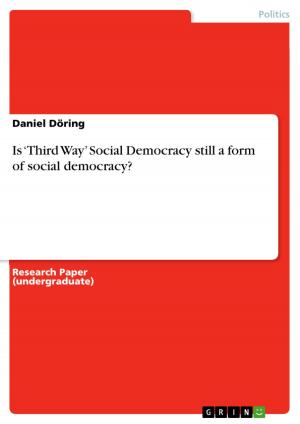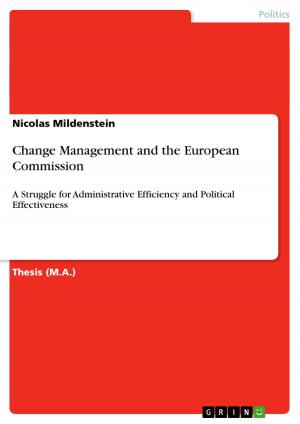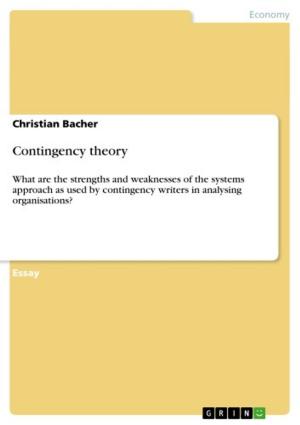Japan's Foreign and Security Policy in the Twenty First Century: Challenges and Alternatives
Nonfiction, Social & Cultural Studies, Political Science, Government, Public Affairs & Administration| Author: | William Fujii | ISBN: | 9783640347766 |
| Publisher: | GRIN Publishing | Publication: | June 16, 2009 |
| Imprint: | GRIN Publishing | Language: | English |
| Author: | William Fujii |
| ISBN: | 9783640347766 |
| Publisher: | GRIN Publishing |
| Publication: | June 16, 2009 |
| Imprint: | GRIN Publishing |
| Language: | English |
Bachelor Thesis from the year 2008 in the subject Politics - International Politics - Region: Other States, grade: 72% - First Class Honours, University of Greenwich, language: English, abstract: This paper argues that because of the new reality of the twenty-first century where the United States is beginning to decline, China is rising and North Korea has acquired nuclear capabilities, Japan may need to rethink its foreign and security policy which are deeply anchored on its alliance with Washington. In the light of these new challenges, this paper considers potential problems and constrains in Tokyo's current strategy and suggests it may not be in Japan's best interest to continue pursuing them. Finally, alternatives to Japan's security policy are considered and this paper concludes that no single alternative could replace the U.S.-Japan alliance as an effective security policy in the foreseeable future. Rather, all the alternatives pursued together would potentially lead to an efficacious option, consequently providing Japan's foreign policy with greater independence from the United States.
Bachelor Thesis from the year 2008 in the subject Politics - International Politics - Region: Other States, grade: 72% - First Class Honours, University of Greenwich, language: English, abstract: This paper argues that because of the new reality of the twenty-first century where the United States is beginning to decline, China is rising and North Korea has acquired nuclear capabilities, Japan may need to rethink its foreign and security policy which are deeply anchored on its alliance with Washington. In the light of these new challenges, this paper considers potential problems and constrains in Tokyo's current strategy and suggests it may not be in Japan's best interest to continue pursuing them. Finally, alternatives to Japan's security policy are considered and this paper concludes that no single alternative could replace the U.S.-Japan alliance as an effective security policy in the foreseeable future. Rather, all the alternatives pursued together would potentially lead to an efficacious option, consequently providing Japan's foreign policy with greater independence from the United States.















